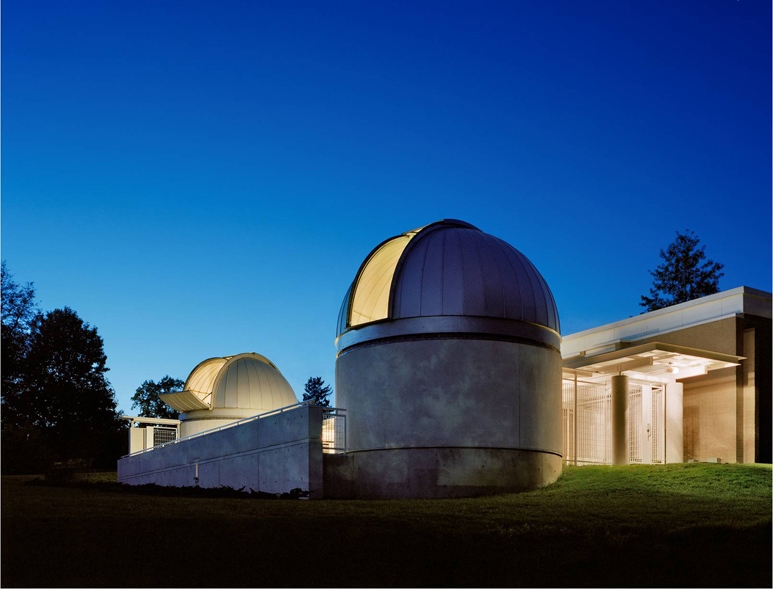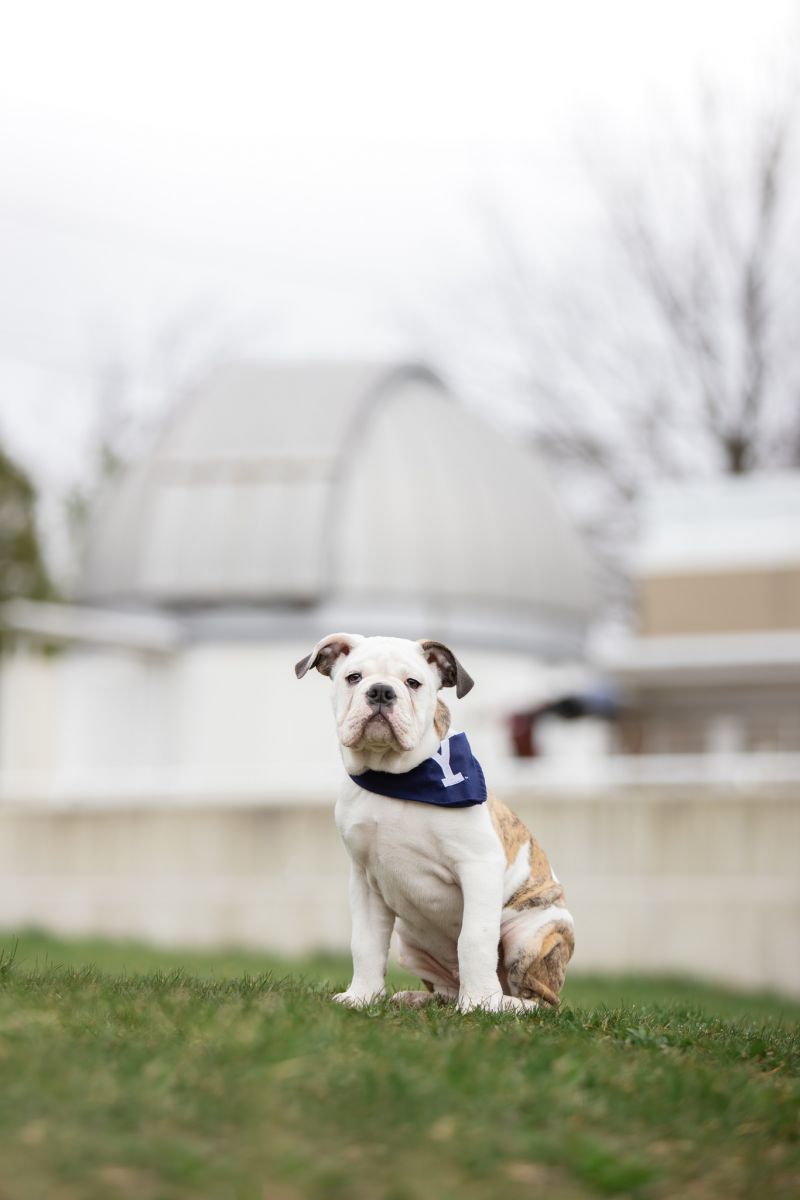The Leitner Family Observatory and Planetarium offers a unique experience for astronomy enthusiasts and casual visitors alike. Nestled within the heart of New Haven, Connecticut, this remarkable facility provides an immersive journey through the cosmos, blending cutting-edge technology with educational content. Whether you're a seasoned astronomer or simply curious about the night sky, this observatory has something for everyone.
As one of the most prominent astronomical centers in the region, the Leitner Family Observatory and Planetarium has become a hub for learning, discovery, and community engagement. Its mission is to inspire people of all ages by showcasing the wonders of the universe. Through its state-of-the-art equipment and interactive programs, it successfully bridges the gap between science and the public.
With its stunning location and dedication to fostering a love for astronomy, the observatory has earned a reputation as a must-visit destination. This article delves into the history, facilities, programs, and impact of the Leitner Family Observatory and Planetarium, providing readers with an in-depth understanding of what makes it such a special place. Let's explore the stars together!
Read also:Chainsaw Carvers The Artisans Who Bring Wood To Life
Table of Contents
- History of the Leitner Family Observatory and Planetarium
- Facilities and Equipment
- Educational Programs and Events
- Introduction to Astronomy
- Community Engagement and Outreach
- Tips for Visiting the Observatory
- The Science Behind Observatories
- Impact on Education and Research
- Future Plans and Expansions
- Conclusion
History of the Leitner Family Observatory and Planetarium
Established in 2009, the Leitner Family Observatory and Planetarium was made possible through the generous donation of the Leitner family. Their vision was to create a center that would promote scientific literacy and inspire future generations to pursue careers in STEM fields. The facility was built on the campus of Yale University, allowing it to leverage the university's academic resources and expertise.
Key Milestones
Since its inception, the observatory has achieved several milestones:
- 2009: Official opening of the observatory
- 2012: Introduction of public stargazing nights
- 2015: Expansion of educational programs for K-12 students
- 2020: Launch of virtual planetarium shows during the pandemic
These milestones reflect the observatory's commitment to innovation and accessibility, ensuring that it remains relevant in an ever-changing world.
Facilities and Equipment
The Leitner Family Observatory and Planetarium boasts a range of cutting-edge facilities designed to enhance the visitor experience. Among its most notable features is the planetarium itself, equipped with a fulldome projection system that creates an immersive 360-degree view of the night sky. This technology allows for breathtaking simulations of celestial events, from meteor showers to solar eclipses.
Telescopes and Observing Equipment
The observatory houses several high-powered telescopes, including:
- A 24-inch reflecting telescope for deep-sky observation
- A solar telescope for safe viewing of the Sun
- Portable telescopes available for public use during stargazing events
These instruments are maintained by a team of dedicated professionals who ensure their optimal performance, enabling visitors to witness celestial phenomena with clarity and precision.
Read also:South Greensburg Vfd A Pillar Of Community Safety And Service
Educational Programs and Events
One of the core missions of the Leitner Family Observatory and Planetarium is to provide educational opportunities for people of all ages. Through a variety of programs and events, the observatory aims to make astronomy accessible and engaging.
Public Stargazing Nights
Public stargazing nights are a popular attraction at the observatory. Held monthly, these events invite visitors to explore the night sky under the guidance of experienced astronomers. Participants can learn about constellations, planets, and other celestial objects while enjoying the beauty of the cosmos.
Planetarium Shows
The planetarium offers a diverse selection of shows tailored to different audiences. From interactive presentations for young children to in-depth lectures for adults, there is something for everyone. Recent shows have covered topics such as the search for exoplanets, the life cycle of stars, and the mysteries of black holes.
Introduction to Astronomy
Astronomy is the scientific study of celestial objects, phenomena, and processes that occur beyond Earth's atmosphere. It encompasses a wide range of disciplines, including physics, chemistry, and mathematics, and seeks to answer fundamental questions about the universe and our place within it.
Why Study Astronomy?
Studying astronomy offers numerous benefits, both intellectual and practical. It enhances critical thinking skills, fosters a sense of wonder, and contributes to technological advancements. For example, the development of telescopes and space exploration technologies has led to innovations in imaging, materials science, and telecommunications.
Community Engagement and Outreach
The Leitner Family Observatory and Planetarium places a strong emphasis on community engagement. Through partnerships with local schools, organizations, and government agencies, it strives to make astronomy accessible to underserved populations.
Outreach Programs
Outreach programs include:
- Mobile planetarium visits to schools and community centers
- Workshops for teachers on integrating astronomy into their curricula
- Mentorship opportunities for students interested in pursuing careers in science
These initiatives help to democratize access to science education and inspire the next generation of scientists and engineers.
Tips for Visiting the Observatory
Planning a visit to the Leitner Family Observatory and Planetarium? Here are some tips to ensure a memorable experience:
Best Time to Visit
Consider visiting during public stargazing nights or special events, as these occasions offer unique opportunities to interact with astronomers and fellow enthusiasts. Check the observatory's website for the latest schedule and booking information.
What to Bring
- Warm clothing, especially for outdoor stargazing
- Binoculars or a personal telescope (optional)
- A notebook for jotting down observations
These items will enhance your experience and make it more enjoyable.
The Science Behind Observatories
Observatories like the Leitner Family Observatory and Planetarium rely on advanced scientific principles to function effectively. From the design of telescopes to the calibration of instruments, every aspect of an observatory is carefully engineered to maximize its capabilities.
How Telescopes Work
Telescopes gather and focus light from distant objects, allowing astronomers to study them in greater detail. The two main types of telescopes are reflecting telescopes, which use mirrors to focus light, and refracting telescopes, which use lenses. Both types have their advantages and are chosen based on the specific needs of the observatory.
Impact on Education and Research
The Leitner Family Observatory and Planetarium has had a significant impact on both education and research. By providing hands-on learning experiences and access to cutting-edge technology, it has inspired countless individuals to pursue careers in science. Additionally, its contributions to astronomical research have advanced our understanding of the universe.
Research Highlights
Some of the observatory's notable research achievements include:
- Discovering new exoplanets through collaborative studies
- Contributing to the mapping of the Milky Way galaxy
- Participating in global efforts to monitor near-Earth objects
These accomplishments demonstrate the observatory's commitment to pushing the boundaries of scientific knowledge.
Future Plans and Expansions
Looking ahead, the Leitner Family Observatory and Planetarium has ambitious plans for growth and development. These include upgrading its facilities, expanding its educational programs, and enhancing its outreach efforts. By investing in the future, the observatory aims to continue inspiring and educating generations to come.
Upcoming Projects
Some of the observatory's upcoming projects include:
- Installing a new high-resolution camera for astrophotography
- Developing virtual reality experiences for remote learners
- Collaborating with international partners on large-scale research initiatives
These projects will further solidify the observatory's position as a leader in the field of astronomy.
Conclusion
The Leitner Family Observatory and Planetarium is a testament to the power of science to inspire and educate. Through its state-of-the-art facilities, engaging programs, and commitment to community outreach, it has become a beloved institution for astronomy enthusiasts around the world. Whether you're a student, educator, or casual visitor, there is something at the observatory to captivate your imagination and deepen your appreciation for the universe.
We invite you to visit the Leitner Family Observatory and Planetarium and experience the wonders of the cosmos firsthand. Share your thoughts and experiences in the comments below, and don't forget to explore our other articles for more fascinating insights into the world of science and astronomy. Together, let's continue to explore the stars!


.jpg)